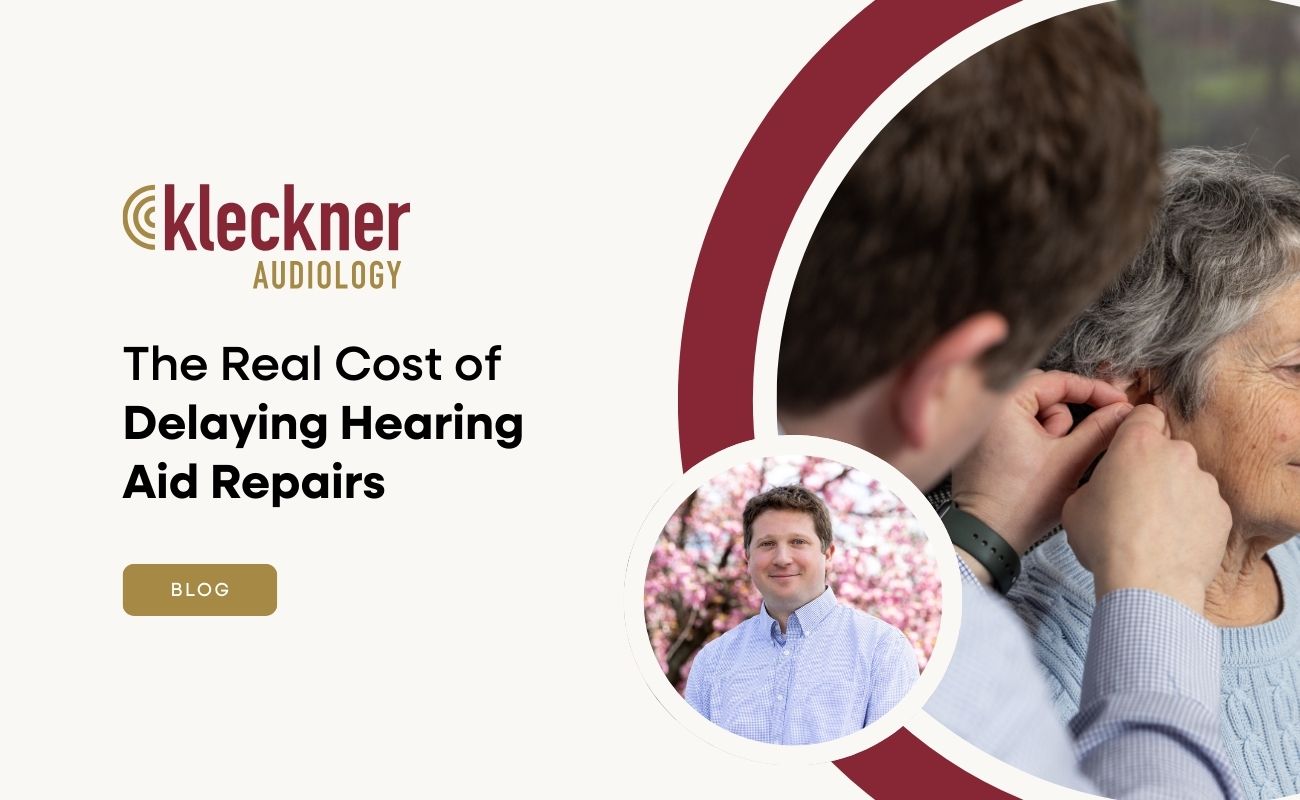Signs Your Hearing Aids Need Professional Repair

Like any electronic device you use daily, hearing aids need regular care and occasional fixes to work their best. Catching problems early can save you from bigger headaches down the road and keep you hearing clearly day after day.
The latest hearing aids from Phonak, ReSound, and Starkey are amazing pieces of technology that use complex computer processing to help you hear better. When you think about how much these devices help you connect with family, friends, and the world around you, it makes sense to pay attention to how they're working. Think of it like your car - you wouldn't wait until it breaks down completely to get it checked out if something seemed off.
Taking good care of your hearing aids and getting them fixed when needed helps them last longer and work better. It's pretty incredible how much these tiny devices can do nowadays - from using artificial intelligence to process sound, to rechargeable batteries that last all day, to connecting wirelessly to your phone. If you know what to watch out for, you can spot potential issues before they get in the way of your daily life and conversations.
Common Signs of Hearing Aid Problems
Sound Quality Issues
If you notice distorted or unclear sound from your hearing aids, this often indicates a problem that needs attention. The sound might appear fuzzy, intermittent, or weaker than usual. These issues can stem from various causes, including debris buildup, moisture damage, or electronic malfunctions.
Physical Damage
Visible cracks, loose parts, or damage to the casing require immediate professional assessment. Even minor physical damage can lead to moisture entering the device or affect internal components. Our repair specialists can evaluate whether repairs are possible or if replacement parts are needed.
Battery Problems
Modern rechargeable hearing aids like the Phonak Infinio, ReSound Vivia, and Starkey Edge AI should maintain consistent battery life. If your hearing aids aren't holding a charge as long as they used to, or if they're dying unexpectedly, they may need professional service. For example, the Phonak Infinio normally provides 16-18 hours of use on a full charge. If you're getting significantly less time, bring them in for evaluation.
Feedback or Whistling
While occasional feedback is normal, persistent whistling often indicates a problem with the fit or function of your hearing aids. This could be due to earwax buildup, improper fitting, or damage to the devices themselves.
Water Exposure
Though many modern hearing aids like the ReSound Vivia and Savi feature IP68 ratings for water resistance, prolonged exposure to moisture can still cause damage. If your hearing aids have been exposed to water or excessive sweat, professional assessment can prevent long-term damage.
When to Seek Professional Repair
Cleaning Doesn't Resolve Issues
If regular cleaning and maintenance don't solve performance problems, professional repair is likely needed. At Kleckner Audiology, we use specialized equipment including Test Box Measures to perform detailed electroacoustic analysis of your devices.
Changes in Fit
If your hearing aids feel loose or uncomfortable, don't attempt to adjust them yourself. Professional adjustment ensures proper fit and function. Poor fit can affect sound quality and potentially damage the devices.
Programming Problems
Modern hearing aids like the Oticon Intent, Signia IX, and Widex Moment contain sophisticated processing systems. If your hearing aids aren't adapting to different environments as they should, they may need reprogramming or repair.
Preventive Care and Maintenance
Regular Check-ups
Schedule regular maintenance appointments to prevent major repairs. During these visits, we can clean your devices thoroughly, check their performance, and address minor issues before they become serious problems.
Professional Cleaning
While daily cleaning at home is important, professional cleaning uses specialized equipment to remove buildup that home cleaning can't address. Our repair lab can thoroughly clean and sanitize all components of your hearing aids.
Moisture Management
Use dehumidifiers and proper storage techniques to prevent moisture damage. If you live in an area with high humidity or participate in activities that expose your hearing aids to moisture, more frequent professional maintenance may be beneficial.
What Professional Repair Includes
Diagnostic Testing
We use advanced diagnostic tools to identify exactly what's causing problems with your hearing aids. This allows us to provide targeted repairs rather than general solutions.
Component Replacement
Many common issues can be fixed by replacing small parts like wax guards, microphone covers, or tubes. We maintain a stock of genuine replacement parts for all major hearing aid brands.
Manufacturer Repairs
For more complex issues, we facilitate repairs with the manufacturer while managing the process to ensure quick turnaround times. We work with all major brands including Phonak, ReSound, Starkey, Widex, Signia, and Oticon.
Performance Verification
After repairs, we verify that your hearing aids are functioning correctly through comprehensive testing. This ensures that repairs have fully addressed the original problem.
DIY vs. Professional Repair
Understanding the distinction between routine maintenance you can perform at home and repairs that require professional expertise helps protect your investment in better hearing. Modern hearing aids like the Phonak Infinio and ReSound Vivia contain sophisticated technology that requires specialized tools and expertise to repair properly.
While daily cleaning and basic maintenance are tasks you can manage at home, attempting complex repairs yourself risks causing additional damage. Professional repair services at our clinic use advanced diagnostic equipment to identify problems accurately and verify that repairs restore optimal performance. Many internal components in today's hearing aids are extremely delicate and interconnected, making professional repair the safest choice for addressing performance issues. Our repair specialists have extensive training in working with hearing aids from all major manufacturers and maintain a comprehensive inventory of genuine replacement parts.
We use specialized verification equipment to ensure repairs meet manufacturer specifications and restore your hearing aids to proper function.
What You Can Do at Home
- Clean your hearing aids daily using appropriate tools
- Change wax guards regularly
- Check and clean the charging contacts
- Store hearing aids properly when not in use
When to Seek Professional Help
- Any internal electronic issues
- Physical damage to the casing
- Persistent sound quality problems
- Battery or charging issues
- Fit adjustments
Insurance and Warranty Considerations
Many hearing aids come with manufacturer warranties covering certain repairs. We can help determine if your repairs are covered and handle warranty claims. Even if your warranty has expired, professional repairs are often more cost-effective than replacing hearing aids.
Schedule Your Hearing Aid Check-Up
If you've noticed any signs that your hearing aids aren't performing optimally, contact us at Kleckner Audiology. Our experienced team, led by Peter Kleckner, Au.D., can diagnose and repair issues with all types of hearing aids. Call us at 610-435-8299 to schedule an appointment at our Allentown office. Early attention to hearing aid problems can prevent more serious issues and help maintain your hearing health.

Dr. Peter Kleckner, Au.D., a seasoned audiologist with experience from prestigious institutions, brings his expertise in comprehensive hearing evaluations and treatments to Kleckner Audiology, where he's been serving patients since 2016.



